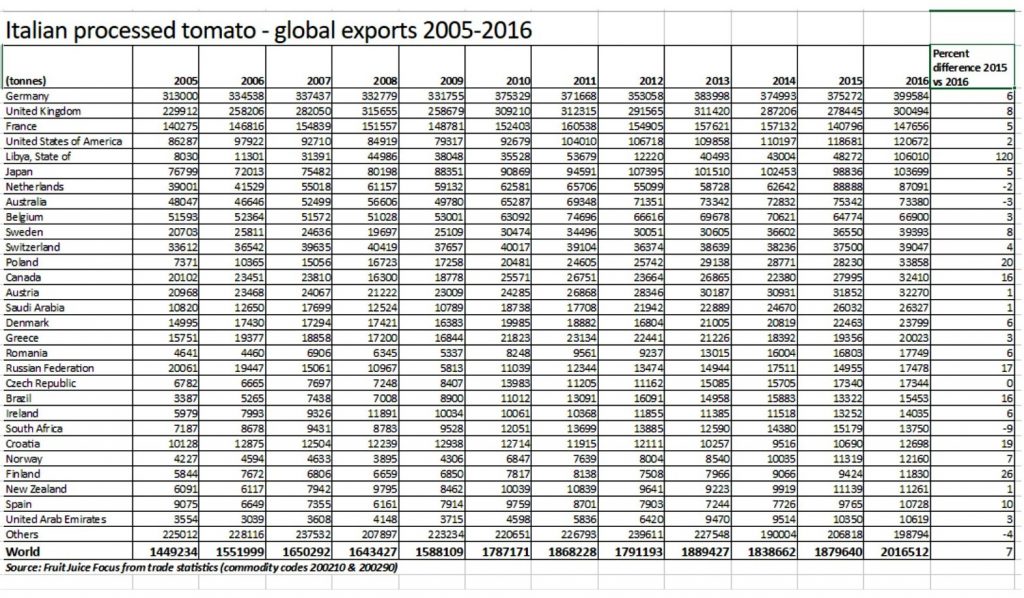Information from USDA, with updated trade data from Fruit Juice Focus
Italy is a world leading processed tomato producer, representing approximately 13% of the global production and 48% of Europe’s production, with a sector turnover of more than EUR3.2 billion.
Acreage to processed tomatoes amounts to nearly 68 640 hectares split mainly among the central-southern provinces of Foggia, Caserta, and Potenza, and the northern districts of Parma, Ferrara, and Piacenza. According to data released by the National Association of the Canned Vegetables Industry (Anicav),
Italy’s processed tomato production totalled 5.1 million tonnes in 2016, a 5.5% decrease from the previous year, mainly due to adverse weather in central-southern provinces during summer. Processed tomato production reached 2.8 million tonnes in northern Italy (+6% over 2015) and 2.3 million tonnes in the centre-south (-13% over 2015).
Crop environment
Generally, conditions in Italy allow for production of tomatoes throughout the year, although the bulk of the processing takes place between the months of July and December. Growing conditions vary substantially between the different regions. In the South, water is plentiful but expensive to use. Many farms utilize drip systems or sprinklers. Growers have set up cooperatives, which are part of larger producer organizations, whose main task is to make joint offers, sign contracts with processing firms, supply seeds, fertilizers and other treatments and own harvesters. Production in the North is completely mechanized and hybrids are predominantly used. The majority of the plantings are plug-seeding transplants. Direct seeding is rare and only used for the cultivation of paste tomatoes, which are sown with precision machines using coated seeds. For peeling tomatoes, the acreage is planted with plug seedlings. Tomatoes for paste are all machine harvested, but those for the production of canned tomatoes are mostly harvested manually.
Varieties
The Italian tomato processing industry produces passata, sauces and pastes and is entirely separate from the fresh-market industry. Specific characteristics differentiate the two types of tomatoes: fresh market varieties are juicier and harvested prior to being ripe, while processing varieties contain higher percentages of solids, are vine ripened and typically have a thicker skin.
Raw material base price Processed tomatoes are mainly produced on a contractual basis, with individual agreements between farmers and the industry.
Last year the Italian tomato processors and producers organisations (POs) representing growers in northern Italy (mainly from Lombardy and Emilia Romagna) set the raw material base price at EUR85.20/tonne. AT the same time the POs representing growers in southern Italy (Calabria, Campania, Puglia, and Molise) set the raw material base price at EUR87.00/tonne for round tomatoes and EUR97.00/tonne for the long variety.




